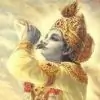Originally posted by: lola610
Welcome aboard Srujan And what an enlightening post to start with, thank you so much for that!
Great going everyone, will add my thoughts as soon as I can... which is taking longer than I hoped it would
Btw am really interested in knowing you guys' thoughts on those vows in particular which weren't fulfilled - most prominent example being Lakshman's vow to kill Bharat before knowing his pure intentions at Chitrakoot. It poses an interesting comparison to Bhishma's situation - both made oaths that later on put them at odds with righteousness; one went through with it and one didn't. How did their situations and the values involved differ?
Thanks a lot Lola for the warm welcome
I think the comparison between Laxmanaswami(L) and Bheeshmacharya(B) is not quite direct as it looks. I would say that it is unfair to put L and B in same category particularly of keeping vows (or not keeping them).
L's vow is as follows: "I shall kill Bharat
now"

B has given the following word to Satyavati's father:
"I shall give away my Yuvraj's seat currently and let Satyavati's son's take over the throne".
Then he made the following Oath to himself:
"I shall never marry in my life and stay as a Bachelor".
Both of them were needed to get his father married to Satyavathi.
Finally he gave the following promise to H'pur people:
"I shall protect the throne all my life and view the king of H'pur as image of my own father".In case of Laxman, by not following the vow, he
did not carry out one particular action that he planned to perform.
In case of Bhishma, he gave a word to Satyavati's father in return of something. He took that something (Satyavati for marriage with his father.) So, now not following his word is like stealing something from someone (nothing short of it).
His promise not to marry is not like a one-time action (unlike Laxman's). He has to follow it every time that presents such a dilemma. There is no choice of not doing it at any particular point of time. He is not out of the trouble at any point of time in life. That is, if he does marry it will stay throughout that he made a vow to get something done(his father's marriage) but did not follow it (for whatever reason)!!!!!! It is like he was unfair in keeping his word in getting what he wanted to get done...
Moreover, marriage is his personal choice..> He always has the right to do it or not. He is not being unfair to anyone until he himself creates a situation like that of Amba's!!!!!! (As very well explained in the article)
Let us come to the final promise to Hastinapur. A lot of ppl might have problem with this promise of his. Particularly with the latter part of the promise.....
Now I feel that B probably did not have a choice with the latter sentence..... If he did not put that last phrase
"I would consider anyone sitting on the throne as my father's image", in what position will he protect the throne. Does he have any right to say anything against the king. If he does, then he is too strong to get the king do what he wants to do. If he reserves the right to go against the king, he has the right to depose the king and install someone who will listen to what he will say..>> In short, he can be a kingmaker if he does not add the phrase.
Satyavati's father can still come to B and say, "So you giving power to my daughter's children is just for the namesake. You want to reserve all the power with you. You simply contradict the promise you have given.... to me.... You are just a thief..."
Moreover, if B could have done that already, then why not go against Shantanu when is after a young woman and not taking care of the kingdom. When he could not do that, it does not surprise me that B did make sure to add that phrase lest he face any problem of contradicting himself!!!!
--------
Coming back to L's case or the case of Arjuna on day 16 vs Yudhi which can be said to be very similar: They said they will do something but they did not. In case of Latter, Krishna could give a good logic and we don't see directly anything in case 1 but we do see the confession of Laxmana directly to Bharat himself "I was planning to kill you bro" for which Bharata replies "Why did u not do it"!!!
The case of Laxmana or Arjuna is a plan or a vow for a particular future (immediate) action which they did not after reasoning it completely and coming back to reality. By not literally fulfilling their vows, they are not unfair to anyone. Moreover, they also realize there is no need to take up the action that they just said they will do. Finally, it is one-time action that you planned to do and did not do as the reasons responsible for their vow changed in that short period of time. That happens all the time in life for normal ppl at least for several reasons including change of circumstances, changes of need to do the same thing. In case of L or A, it was one of the lesser frequent events but then it is not surprising it happened.
In case of Bhishma, there is no immediate thing he planned to do or something. It was "a plan for all future"..> he had made a vow not to do something(marriage) or a promise to always do something (support H'pur throne) which at no point of time is (un-)fulfilled.
There is also a human angle we can understand Bhishma.>>> "A person who vowed as a vegetarian will keep doing it that way more and more with time and will object going back to non-vegetarian" (I have been successful to keep the vow so long and why should I break it for even longer..> Why should I lessen my success of keeping the vow for throughout the life)
Makes much more sense in the case of B than others and it does not mean their values are widely different..> It is known the kind of person B is(in literal promise-keeping) but it has also to do with the kind of vows he made, the circumstances he was in when making them as compared to L or A which were much simpler to understand and made perfect sense to NOT fulfill their vows.
Edited by esrujan - 14 years ago




































